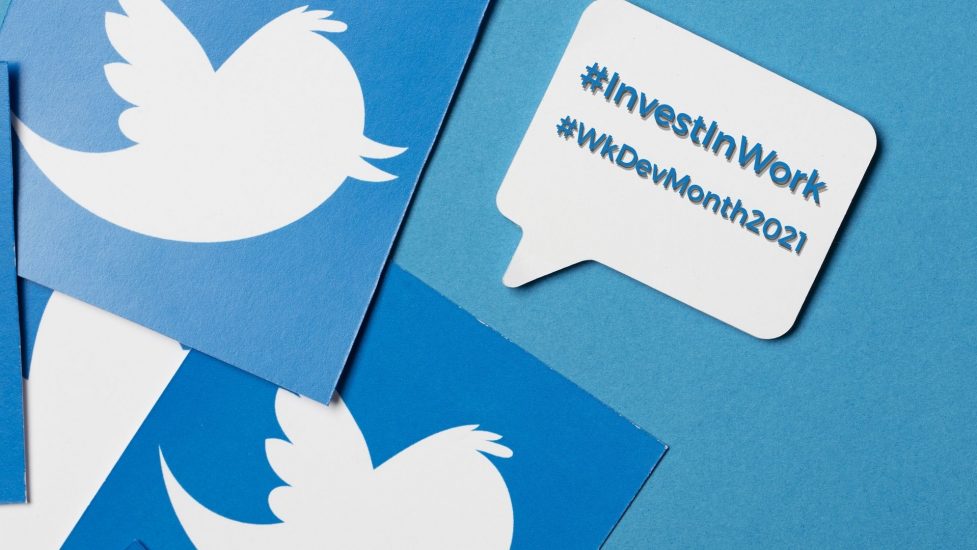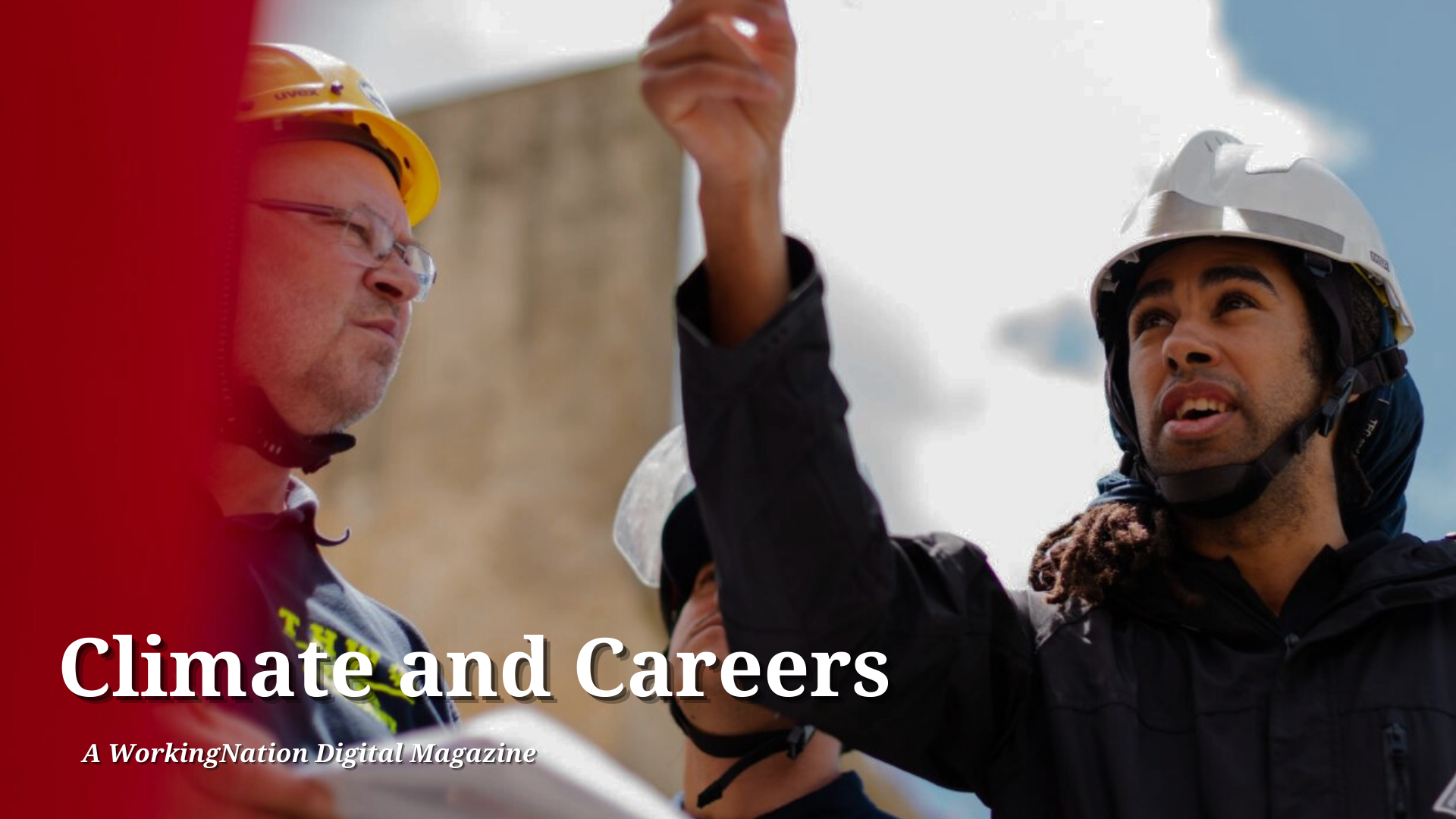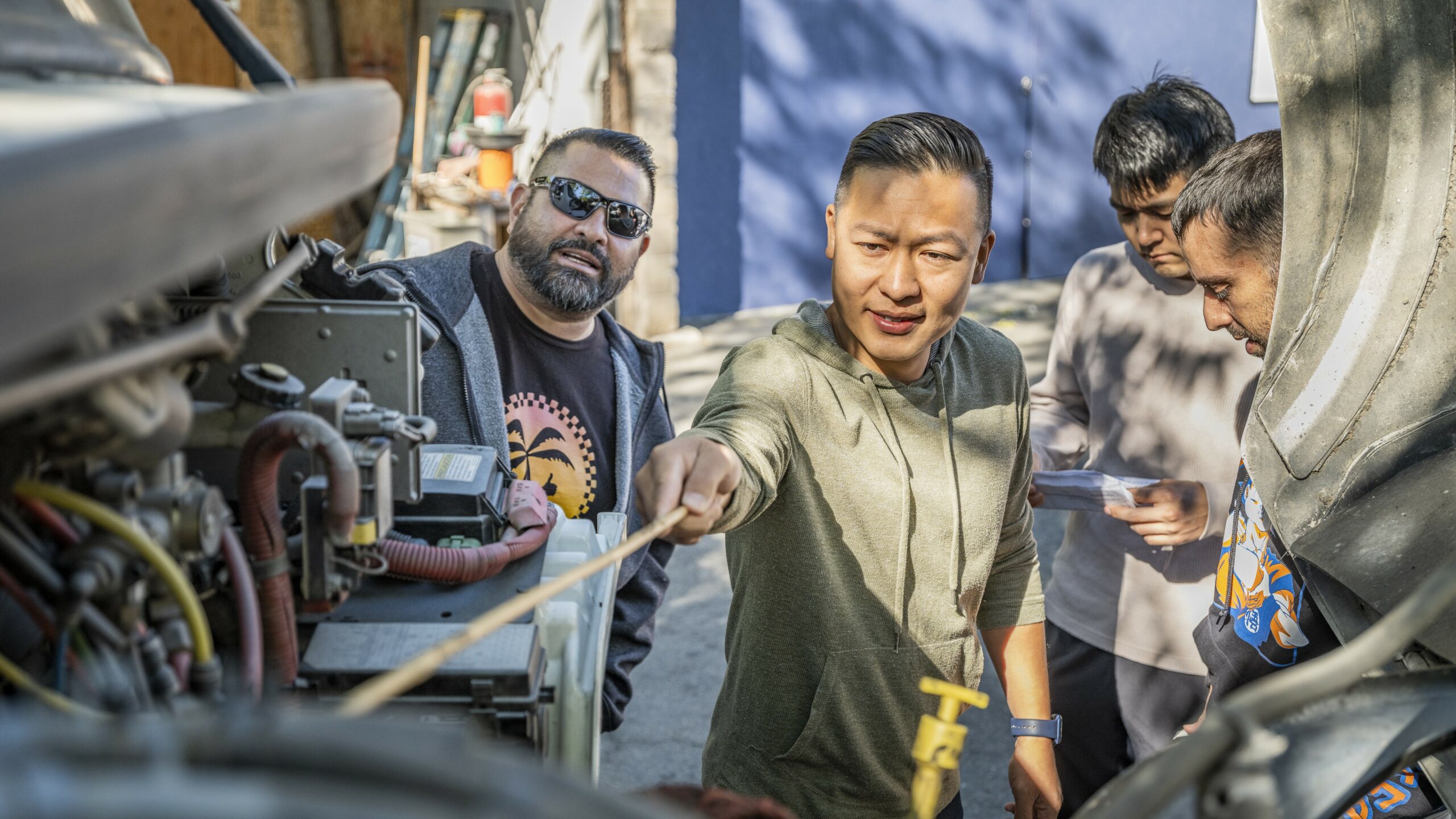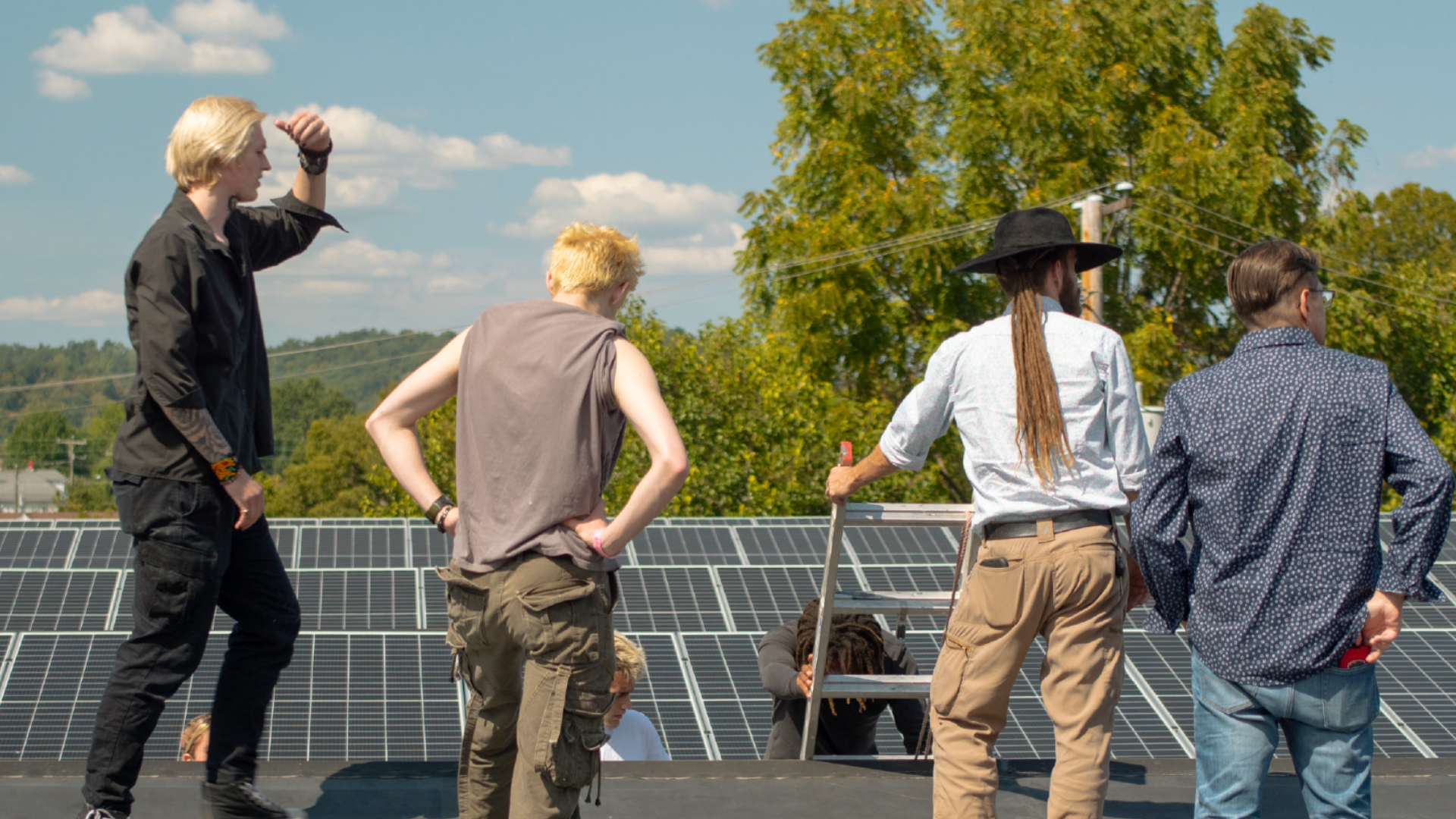It’s been almost 18 months since the onset of the pandemic and today, millions of job seekers continue to look for their places in the workforce. Many face barriers that are keeping them from landing well-paying jobs that provide family-sustaining wages.
To kick off National Workforce Development Month, the Federal Reserve Banks of Atlanta, Philadelphia, and Kansas City, and Fed Communities, along with WorkingNation, invited educational, philanthropic, corporate, and workforce development thought leaders to engage and share solutions around how to help workers move forward in an #InvestInWork Twitter chat.
The participation was robust in the hour-long online conversation on how we can work together to Get America Back to Work. The Q&A format resulted in many observations and suggestions—too many to share here. But we would like to offer examples of some of the tweets to illustrate the range of ideas.
And remember, it’s not too late to jump into the mix by going on Twitter using the hashtag #InvestInWork. We encourage you to do so, so we can keep this important discussion going throughout the month.
The National Fund for Workforce Solutions says getting to workforce equity requires a very deep dive. The National Fund aims for a time when “workers, employers, and communities are thriving and prosperous.”
A1: Addressing systemic issues requires systems thinking. Getting to the root cause of an issue and understanding how different systems interact is essential to making lasting, equitable change. Learn more about systems thinking here. #InvestInWork https://t.co/SEo6OBQIDh
— National Fund for Workforce Solutions (@National_Fund) September 1, 2021
Removing barriers and achieving fairness in the workforce goes hand-in-hand with eliminating racism, according to the Council for Adult and Experiential Learning (CAEL). The organization advocates for the adult learner.
A1: We realize our work will never be complete while racism and the inequities it perpetuates exist. And this means we cannot overlook opportunities to more tangibly connect our mission and work to the broader one of eradicating systemic racism #InvestInWork https://t.co/XhbLWamfNx
— CAEL (@CAELnews) September 1, 2021
In order to knock down barriers to employment, David M. Rubenstein Fellow Annelies Goger of Brookings says there needs to be consideration of lived experiences. The mission of the Metropolitan Policy Program is “to deliver research and solutions that help metropolitan leaders build an advanced economy that works for all.”
A1. Start by asking people what their barriers and aspirations are, and build a coordinated strategy rooted in an understanding of our/their experiences rather than making assumptions. #InvestInWork https://t.co/9aEQFyCaKc
— Annelies Goger (@annelies_goger) September 1, 2021
Collaborative funding efforts among stakeholders can provide critical impact for those that are often left behind, according to World Education Services. The WES Mariam Assefa Fund, the philanthropic effort of WES, invests in inclusive efforts for immigrants and refugees in the U.S., as well as Canada.
A2 (1): Leveraging non-government funding (employers, philanthropy, investors) can shift the future of financing workforce training – this has the potential to change existing employment pathway experiences and improve job quality. #InvestInWork
— World Education Services (@WorldEdServices) September 1, 2021
Hiring managers need to rethink requirements when bringing in new talent. Opportunity@Work says there are plenty of people who don’t have college degrees that are skilled and capable of filling those positions.
A2: Employers need to find and invest in STARs (workers Skilled Through Alternative Routes) where they are. Our Navigating with the STARs report finds that there are 51 gateway jobs that unlock economic mobility for STARs. #InvestInWorkhttps://t.co/WWH2NJk3QD
— Opportunity@Work (@OpptyatWork) September 1, 2021
Fed Communities echoes Opportunity@Work noting that on-the-job training can help grow and move up workers without traditional credentials.
A2: There could be more promotion of Opportunity Occupations—good jobs that do not require a 4-year degree, pay well, and often provide job training. #InvestInWorkhttps://t.co/3VObBSev61
— Fed Communities (@FedCommunities) September 1, 2021
National Skills Coalition notes juggling life at home can create an obstacle for people trying to gain solid footing in the workforce. NSC states it “fights for a national commitment to inclusive, high-quality skills training.”
A3 1/3: Policymakers should invest in expanding innovative state and local models that provide childcare for workers enrolled in skills training. Here’s a great example from Mississippi: https://t.co/DfO1RbuMrq #InvestinWork
— National Skills Coalition (@SkillsCoalition) September 1, 2021
Workforce Matters focuses on more inclusive philanthropic efforts in the workforce development space. The organization points out that access is more than upskilling and reskilling.
#InvestInWork A3 Move bey ond skills training to support policies that also expand access to the safety net, address digital redlining, and expand access to high quality jobs and benefits.
— Workforce Matters (@WFMFunders) September 1, 2021
The Federal Reserve Bank of Atlanta says advancement for working families can create a barrier when it “puts a family above the income eligibility threshold for public assistance programs.”
A3: Some working families experience financial barriers to economic mobility. Understanding and mitigating the benefits cliff is critical to help policy shift to enable stronger mobility of low-income workers in the labor market. #InvestInWork https://t.co/hKvKQcxwxj
— Atlanta Fed (@AtlantaFed) September 1, 2021
The Center for Workforce Inclusion advocates for the older worker. Rita Santelli, chief marketing officer, tweets that age must be part of the inclusion conversation.
Replying to @WorkingNation
A4 (2/2) – While almost all large employers have diversity strategies that include race and gender, only 8% include age as a factor. @WorkforceINCL #InvestInWork https://t.co/UXYQQSY2Wx— Rita Santelli (@RitaSantelli) September 1, 2021
Upskill Houston is an initiative led by employers that’s intended to fortify the talent pipeline. The collective tweets that education is important to the process, as well.
Q4 Employers can also work with school systems to communicate the skills they need in their workforce and to help students recognize and understand the good careers and career pathways they offer#InvestInWork
— UpSkill Houston (@UpSkillHouston) September 1, 2021
Banks can contribute to workforce efforts by giving back to the community, according to the Federal Reserve Bank of Kansas City.
A4 Banks can play a role in supporting and coordinating workforce services – while meeting their Community Reinvestment goals. See the #KCFed bankers’ guide ‘Engaging Workforce Development’ for ideas to put to work. https://t.co/ME3FH6AFip #InvestInWork pic.twitter.com/Jbajl8GWzK
— Kansas City Fed (@KansasCityFed) September 1, 2021
The Hope Center for College, Community, and Justice addresses the importance of meeting students’ basic needs, particularly during the continuing pandemic.
The voices of #RealCollege students matters too! Employers need to be reliable and pay living wages so college students who are working can actually graduate. They can’t just hire grads and not help make grads. Majority of students are working. #InvestInWork
— Hope Center for College, Community, and Justice (@hope4college) September 1, 2021
Results 4 America utilizes “the power of evidence and data to solve the world’s greatest challenges.” The organization notes those most affected need to be heard in order for programs and initiatives to work.
A5: Youth Councils like @cwdcsyc ensure that those most impacted by the programs, research, and policy are at the table. #InvestinWork
We should always ask, “Who is not present?” https://t.co/3CGoxsxMsm pic.twitter.com/9W5EBgAoa2
— Results for America (@Results4America) September 1, 2021
The Federal Reserve Bank of Philadelphia reiterates that it’s the workers and those trying to get back to a job who are at the core of creating impactful solutions.
A5: Workforce systems need to provide workers agency and choice as they navigate their options for career pathways. A human-centered system acknowledges the people behind the policies and adapts for a rapidly changing labor market. https://t.co/PbGcNNeUtU#InvestInWork 2/2
— Philadelphia Fed (@philadelphiafed) September 1, 2021
As you can see, there are plenty of innovative ideas around getting people back to work.
You can still join in on this chat. Go to Twitter using the hashtag #InvestInWork.
The conversation is critical. Let’s keep it going.











